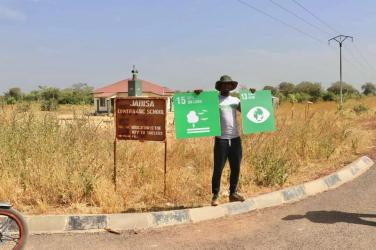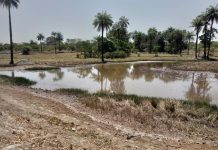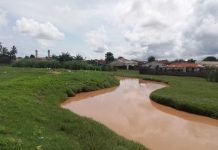By Nelson Manneh
Muhammed Hydara, the Secretary General of the Gambia Environmental Alliance (GEA), said his institution strongly opposes the government’s decision to de-gazette Nyanibereh Forest Park, which deviates from due diligence procedures.
On the 26 October 2023, the national television (GRTS) announced that the Cabinet had unanimously agreed to de-gazette a portion of Nyanebereh Forest Park and Bijilo National Park.
Following the degazetting, the Gambia Environmental Alliance (GEA) in a press release expressed deep concern over the Government’s decision to de-gazette parts of Nyanaberi Forest Park in Jarra and Bijilo National Park for office buildings, hotels, and a village.
Nyanibereh Forest Park, situated in the Lower River Region between the communities of Buiba and Karantaba village, holds historical significance, established back in 1954 as part of a German government project in The Gambia.
This ancestral land connects the five satellite villages of Buiba, Jabisa, Karantaba, Foroya, and Musa Wuriyah. While these communities maintain their community-based forests for sustenance, a recent issue has emerged with encroachments into the Forest Park.
He said during their initial visit to Nyanibereh Forest Park as the Taskforce of Gambia Environmental Alliance (GEA), they engaged in a community meeting with the Alkalo of Jabisa concerning encroachments and new settlements within their portion of the forest. He said the Alkalo highlighted the illegality of these settlements and escalated the matter to the regional governor and chief. Unfortunately, the issue has been politicized, neglecting the imminent threat to Nyanibereh Forest Park.
“Presently, forty households exist within the gazetted forest area, despite recent recommendations by the Minister of Environment, Climate Change, and Natural Resources, Rohey John Manjang, proposing eighty-two hectares to be allocated to these illegal settlers,” he said.
“The Gambia continues to lose its forest cover due to illegal settlements, bush burning, and charcoal production, exacerbating the effects of climate change. This exploitation of our carbon-sinking resources, like forests, is transforming them into carbon emitters, further jeopardizing our wildlife and leading to the extinction of species inhabiting these crucial habitats,” he noted.



















